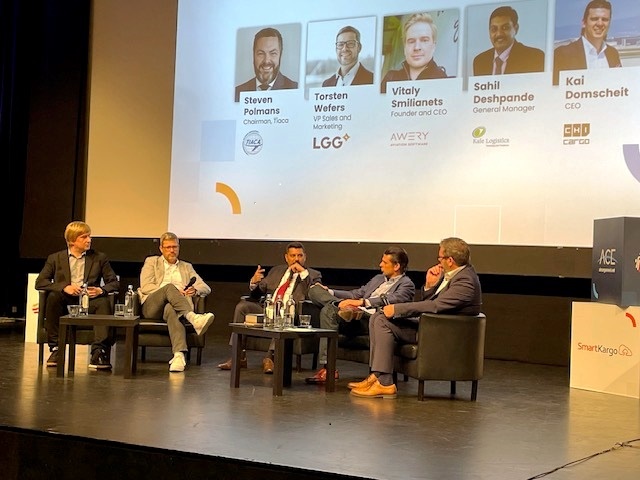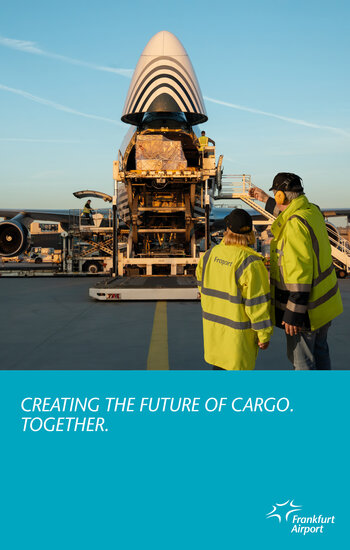This key topic stood high on the agenda of the ACE Cargoland conference in Liège that took place from 08-10SEP25 in the historic Palais des Congres Liège building. Participants included leading industry experts that provided an overview of local, regional, and global air cargo developments, new global challenges, and tabled current trends. Organizer of the trade show was ACE Aircargoevent in collaboration with Liège Airport.
Are airport communities a valuable tool for the integration of the various partners within the air cargo chain or rather a fig leaf for platforms that wish to hide their lack of interest in air freight? This was discussed by experts at a panel titled: ‘From Infrastructure to Influence: Airports shaping Cargo Community Synergy’. Moderated by TIACA Chairman Steven Polmans. Sitting on stage were Torsten Wefers, VP Sales & Marketing of Liège Airport; Vitaly Smilianets, Founder and CEO of aviation software specialist AWERY.AERO; Sahil Deshpande, General Manager of Kale Logistics and Kai Domscheit, CEO of CHI Deutschland Cargo Handling GmbH.
Early this year Liege Airport launched its cargo community ‘LGG Connect’, kicking off with 8 members now en route to a membership of 15. According to Torsten Wefers, LGG has always had strong informal contacts, but now it was time to streamline this, broaden the knowledge and drive progress forward.
Sahil Deshpande was involved in the set-up of South-America’s first community at El Dorado International Airport in Bogotá. Mr Deshpande pointed to the fact that airports are at the center of the supply chains. There is a need to eliminate the paperwork but, at the same time, make sure that the data are visible, he said. “One of today’s challenges is the unfounded fear of exchanging data. A cargo community is also about educating what air cargo is about.”

Keep the cargo people happy
Kai Domscheit remarked that, in general, airports are passenger minded, especially the larger platforms like Frankfurt and Schiphol. “They have a huge passenger operation and cargo is not on their map. These airports may have a cargo community to keep the cargo people happy, but cargo is not their main concern.” However, this was completely different during the C-19 pandemic.
Speaking for his own kind of business Vitaly Smilianets said that a community system makes connecting easier, so that in the long run a community can bring benefits. Torsten Wefers insisted that airports must realize that the parties seize the opportunity. “If a tool is given, use it,” he said. “We will organize workshops bringing people together in digitization, collecting data and using these for decreasing processing times.”
“If you pay for something, you need to get something,” said CHI Chief Domscheit, a rather distant lover of the concept. “Community systems will help you to cope with certain issues and may help create a fair playing ground. But there may also be other underlying reasons for the set-up of some tools. A slot booking system, to name but one, is created due to a shortage of labour.”
Inter-community collaboration
Looking forward, moderator Steven Polmans suggested that collaboration between cargo communities may be the next step. That prompted the reaction of Liège manager Wefers, who said that the members of an air cargo community may also be members of communities at other airports. “As for the Belgian level, we are reaching out to Air Cargo Belgium in Brussels.”
Kai Domscheit concluded that it is imperative that communities are governed properly and that the airport must be transparent in the import and export process. “More ownership and leadership from airports are needed.”
Well-attended conference
ACE Cargoland did not communicate about the number of participants, but the sessions were well attended. The delegates represented every business sector within the industry. Apart form the collaboration issues, cross-border logistics, e-commerce and compliance stood on the agenda.




